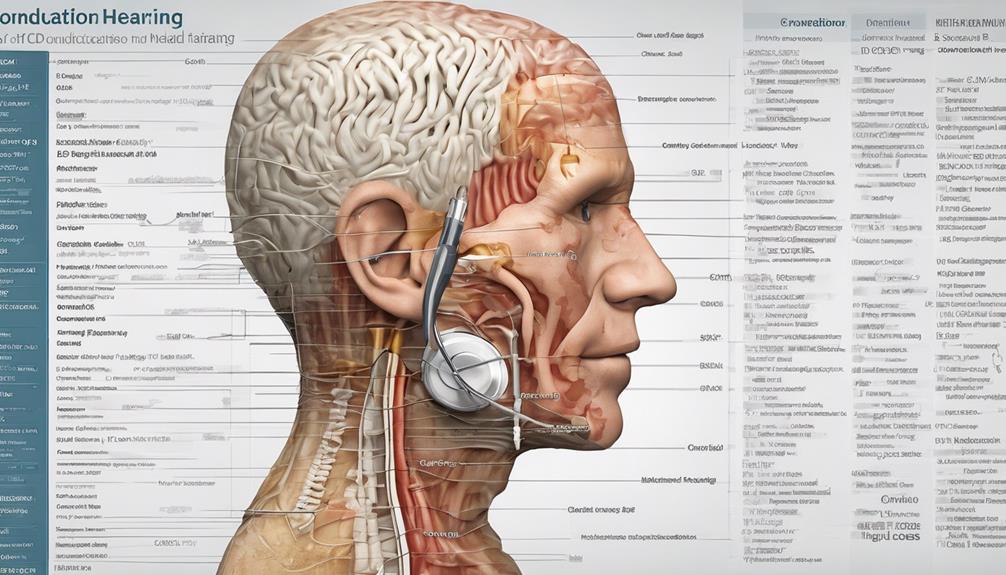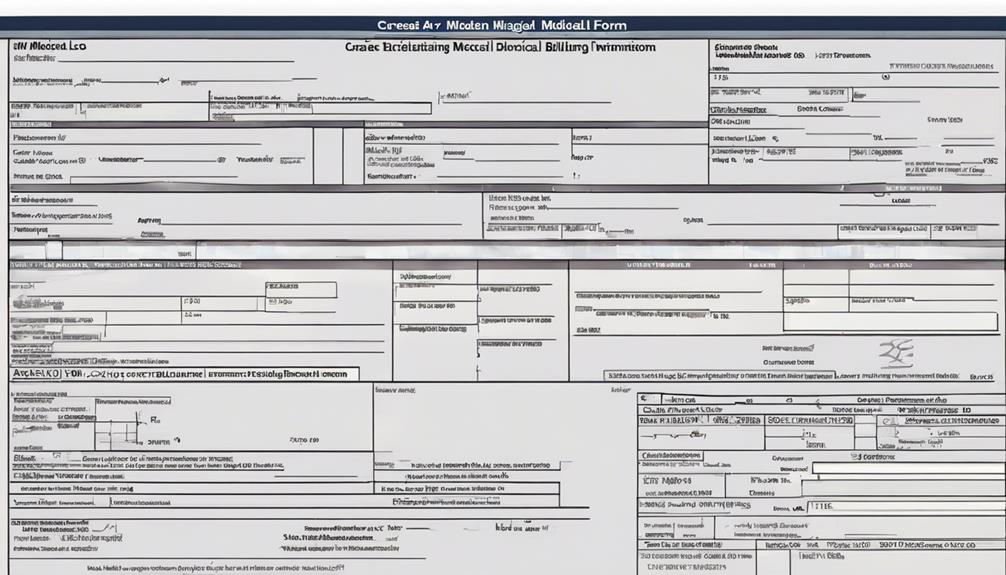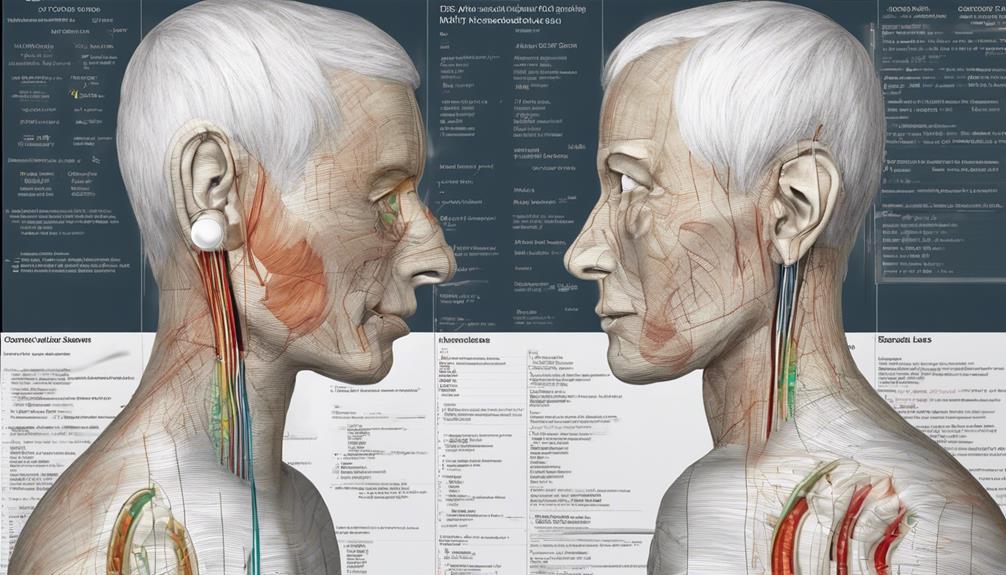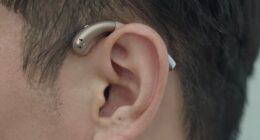Navigating the world of ICD codes can feel like deciphering a complex map where valuable treasures are waiting to be found.
In the realm of medical coding, precision is paramount, especially when it concerns conditions like Conductive Hearing Loss.
As we unravel the layers of this intricate classification, we find a wealth of knowledge that can significantly impact patient care and reimbursement processes.
Join us as we shed light on the nuances of the ICD Code for Conductive Hearing Loss, offering insights that could enhance your coding expertise and streamline healthcare practices.
Key Takeaways
- Accurate ICD coding (H90.2) aids in treatment planning and billing efficiency.
- Audiologists must follow chapter-specific guidelines for proper classification.
- Understanding reimbursement factors and payer policies is crucial for billing success.
- Utilizing resources like ICD-9-CM crosswalks ensures coding compliance and reduces claim denials.
Understanding Conductive Hearing Loss ICD Code
When assigning the ICD-10 code for conductive hearing loss, it's crucial to understand the specific designation of code H90.2. This code falls under the Diseases of the ear and mastoid process chapter in the ICD-10 coding system. It's essential for accurate medical coding and billing to correctly identify and apply the code H90.2 for conditions like conductive deafness NOS. Utilizing ICD-9-CM Crosswalks can aid in transitioning from the previous coding system to ICD-10, ensuring continuity and accuracy in classification.
Proper classification of conductive hearing loss using the ICD-10 code H90.2 is imperative for healthcare providers to streamline billing processes and maintain accurate medical records. Understanding the nuances of this code allows for precise documentation of patient conditions related to conductive hearing impairments. By adhering to chapter guidelines and utilizing resources like ICD-9-CM Crosswalks, healthcare professionals can navigate the complexities of medical coding with confidence and efficiency.
Importance of Proper Classification

Proper classification of conductive hearing loss through accurate ICD coding is fundamental for ensuring precise diagnosis and effective treatment planning in healthcare. When it comes to hearing loss types, the importance of accurate classification can't be overstated. Here are three key reasons why proper classification through ICD codes is crucial:
- Accurate Diagnosis: Using the correct ICD code for conductive hearing loss allows healthcare providers to pinpoint the exact nature of the patient's condition, leading to more targeted and effective treatment strategies.
- Treatment Planning: Precise classification of hearing loss types enables medical professionals to develop tailored treatment plans that address the specific needs of individuals with conductive hearing loss.
- Medical Billing Efficiency: Proper ICD coding streamlines the billing process, reducing the likelihood of claim denials and ensuring that healthcare services are accurately documented and reimbursed.
Coding Guidelines for Audiologists

To accurately document cases of conductive hearing loss, audiologists must adhere to specific coding guidelines outlined in the ICD-10 system. Proper ICD-10 coding is crucial for audiologists to ensure accurate classification of conductive hearing loss cases. Understanding the nuances of Chapter-specific guidelines is essential for assigning the correct ICD-10 code for each patient accurately. When coding for conductive hearing loss, audiologists should document the type of hearing loss, laterality, and any related conditions to achieve coding accuracy. It is imperative to differentiate between bilateral, unilateral, and unspecified codes for conductive hearing loss to capture the patient's condition comprehensively. Accurate ICD-10 coding not only facilitates proper billing but also aids in treatment planning and quality reporting for audiology services.
| Coding Guidelines | Description | Importance |
|---|---|---|
| Chapter-Specific | Follow guidelines closely | Ensure correct ICD-10 code assignment |
| Documentation | Include all relevant details | Enhance accuracy in coding |
| Differentiation | Understand code differences | Accurately represent patient's case |
| Billing Benefits | Facilitate proper billing | Aid in treatment planning |
Reimbursement and Billing Considerations

Understanding reimbursement and billing considerations for conductive hearing loss services is essential for maximizing financial outcomes and ensuring compliance with coding regulations. When dealing with reimbursement for conductive hearing loss ICD codes, several key points should be kept in mind:
- Payer Policies: Reimbursement rates can vary based on different payer policies, so staying informed about specific requirements is crucial for accurate billing.
- Documentation Quality: Proper documentation of medical necessity is essential for successful reimbursement. Ensuring that all required information is included in the claim can prevent delays or denials.
- Coding Compliance: Adhering to coding guidelines, using accurate ICD-10-CM codes, and including necessary modifiers are vital for avoiding claim rejections. Denials for unspecified codes like H90.2 can often be resolved by providing additional details or specificity in the documentation.
Resources for Further Information

For a comprehensive understanding of resources available for further information on ICD-10 code H90.2 for Conductive Hearing Loss, exploring chapter-specific guidelines and crosswalks to ICD-9-CM can provide valuable insights and guidance. By delving into these resources, medical coders can ensure accurate classification and reporting of Conductive Hearing Loss cases. Additionally, utilizing tools like forums, character notes, and category notes can enhance comprehension and application of H90.2 in medical coding practices.
Here is a table highlighting essential resources for mastering the use of ICD-10-CM code H90.2:
| Resource | Description |
|---|---|
| Chapter-specific guidelines | Detailed instructions specific to each chapter in ICD-10-CM. |
| Crosswalks to ICD-9-CM | Mapping tools to aid in transitioning from ICD-9-CM to ICD-10-CM. |
| Excludes1 notations | Defines codes that should never be used together. |
| Excludes2 notations | Indicates codes that are excluded under certain circumstances. |
Frequently Asked Questions
What Is the ICD-10 Code for Conductive Hearing Loss?
We use ICD-10 Code H90.2 to denote unspecified conductive hearing loss. This code covers a range of conductive hearing issues but excludes conditions like noise-induced hearing loss.
To ensure accurate coding, we refer to chapter-specific guidelines. Crosswalks to ICD-9-CM are available for easy reference.
Understanding the code's official long descriptor and guidelines is crucial for precise code application.
What Is Diagnosis Code H7292?
Diagnosis code H7292 doesn't exist in the ICD-10 coding system. It's crucial to accurately identify the correct ICD-10 code for medical billing and treatment purposes.
Conductive hearing loss is typically represented by the code H90.2 in the ICD-10 system. Understanding the specific codes ensures proper documentation and care coordination for patients.
Accurate coding is vital for healthcare professionals to deliver optimal services and support patient outcomes.
What Is the ICD-10 Code for H90 A21?
The ICD-10 code for H90.A21 isn't a valid code. To accurately assign a code, it's essential to verify the correct alphanumeric combination and refer to specific guidelines.
Utilizing the appropriate code ensures accurate classification and documentation of the medical condition. For precise coding, it's recommended to consult the latest coding resources and guidelines to capture the diagnosis comprehensively.
What Is the ICD-10 Code for H90.90?
We utilize the ICD-10 code H90.90 for unspecified sensorineural hearing loss. Proper documentation of the type and laterality of sensorineural hearing loss is crucial for accurate reporting.
Ensuring precise utilization of ICD-10 codes like H90.90 is essential for correct medical billing and coding processes. Remember, accuracy in coding leads to better patient care and streamlined healthcare operations.
Let's continue to prioritize accuracy in our coding practices for optimal healthcare outcomes.
Conclusion
In conclusion, understanding the ICD code for conductive hearing loss is crucial for accurate diagnosis and treatment. By following coding guidelines and utilizing resources available, audiologists can ensure proper classification and reimbursement for their services.
Remember, navigating through medical classifications is like solving a puzzle – each code is a piece that fits together to paint a clear picture of the patient's condition. Keep coding with precision and care to provide the best care for those with conductive hearing loss.











